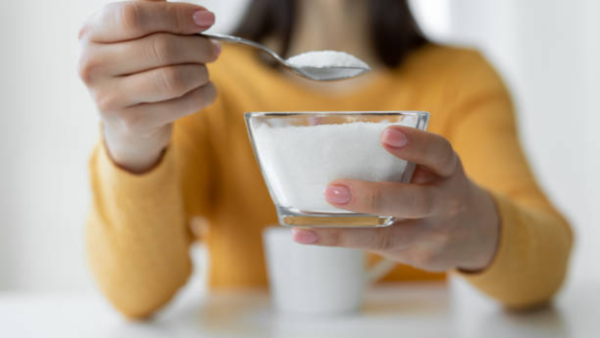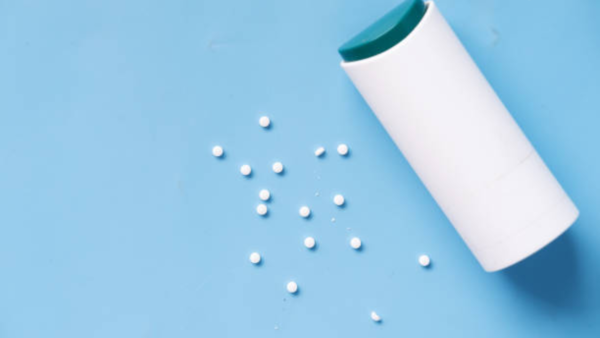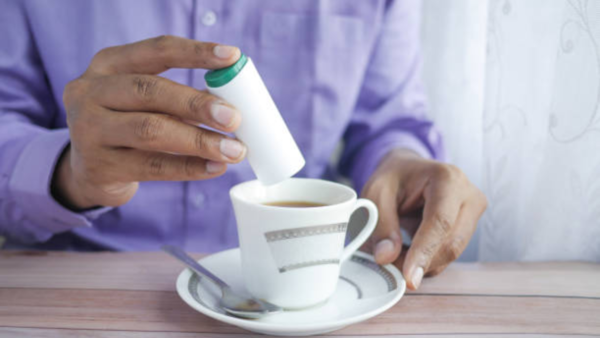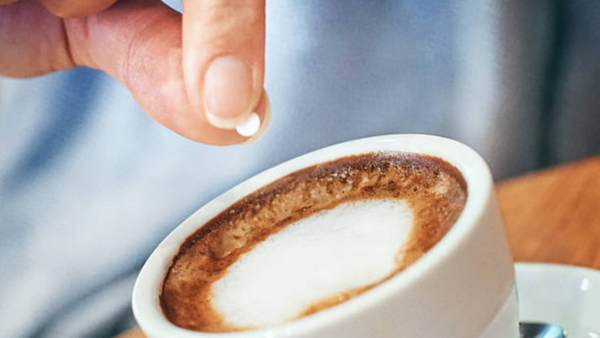The metaphor completely matches an trade which has thrived on the catastrophic downfall of sugar. Whether or not sugar is actually the villain it’s been made out to be stays an inconclusive debate, however the mere shadow of doubt has considerably contributed to the rise of a number of of its synthetic substitutes over time.
Virtually each different meals that we now have on our tables at the moment is laced with synthetic sweeteners.From comfortable drinks to sherbat mixes and from protein powders to chyawanprash, something that’s ‘low calorie’, or ‘diabetic pleasant’ is added with one or the opposite substitute for sugar. These synthetic sweeteners are characterised by their ‘further’ candy style, however have far fewer energy than sugar. There are six synthetic sweeteners which were authorised by the Meals and Drug Administration (FDA) of the US: Aspartame, Sucralose, Saccharin, Acesulfame Potassium, Neotame, and Advantame. Here is an in depth evaluation of their composition, energy, and properties one after the other.
Aspartame
: It’s about 200 instances sweeter than sugar. It was invented in 1965 by James M. Schlatter whereas he was researching anti-ulcer medicine. For a very long time it was below the scanner because it was believed to be chargeable for inflicting mind tumors and it was solely in 1981 that it lastly received approval. Aspartame is constituted of two pure amino acids, that are barely modified, and is offered below model names comparable to Sugar Free and Equal. The FDA (US Meals and Drug Administration), WHO (World Well being Group), and European Meals Security Authority (EFSA) take into account it protected if consumed moderately. Nonetheless, in response to the NutriNet-Santé cohort research (France), it was concluded that adults who consumed greater quantities of aspartame had the next likelihood of growing most cancers than others.
Sucralose:
It’s 600 instances sweeter than common sugar. In 1976 scientists created it by binding sucrose molecules with chlorine. It’s a synthetic compound chemically derived from sugar and is offered below the model identify Splenda. A 2022 research revealed within the journal Microorganisms identified that this sweetener can adversely impression intestine fauna. There are additionally different research which have indicated its potential to trigger DNA harm and trigger ailments like most cancers. Nonetheless, the Nationwide Most cancers Institute (NCI) is seemingly ready for extra proof to hyperlink it to human most cancers. In mild of the World Well being Group’s latest stance on declaring aspartame a Class B carcinogen, the NCI is reviewing the prevailing information on synthetic sweeteners and most cancers threat.
Saccharin:
It’s the oldest and easiest synthetic sweetener nonetheless in frequent use. 400 instances sweeter than sugar, it has a bitter aftertaste. It was found in 1879 by Constantin Fahlberg, who labored on coal tar by-products! Some research have linked it to most cancers in rats. It was banned by the US authorities within the Nineteen Seventies, however as a result of intervention of Congress, it grew to become accessible with a warning label.
Acesulfame Potassium:
This was by chance found by a German scientist who was engaged on oxethazaine dioxides. With a bitter after style, it’s a calorie-free sweetener. Some short-term research have linked it to disruption of intestine flora and weight acquire. Extra analysis is required on this regard.
8 easy tricks to curb your sugar cravings
Neotame:
This one has been round because the 2000s and is named a sweetness powerhouse as it’s almost 8,000-12,000 instances sweeter than sugar. Neotame, a synthetic sweetener accessible to be used in meals merchandise for which aspartame is inappropriate, could harm the gut, in response to a 2024 research from Anglia Ruskin College in Cambridge, UK. The analysis discovered that neotame can harm or change wholesome cells in human intestinal partitions, resulting in IBS.

Advantame:
It was authorised by the US FDA in 2014. It’s the latest synthetic sweetener and is staggeringly 20,000 instances sweeter than sugar. It has no aftertaste and is extra steady than aspartame. Up to now, no unintended effects have been discovered, however extra long-term analysis is required to establish its potential impression on human well being. The European Meals Security Authority (EFSA) has set 5 milligrams per kilogram of physique weight per day as an appropriate each day consumption (ADI) to make sure security.

Is stevia too a synthetic sweetener?
Stevia is a pure sweetener constituted of the leaves of the Stevia plant that has its origin in South America. Historically stevia has been used as a sweetener in international locations like Paraguay and Brazil. Practically 300 instances sweeter than sugar is artificially extracted and purified to be used in meals merchandise. It’s typically thought of protected. However some folks could expertise digestive points, comparable to bloating or diarrhea, particularly if consumed in massive quantities therefore extreme use will not be really helpful.
What about Monk fruit sugar? Is it pure?
Monk fruit sugar, also called luo han guo, is derived from the monk fruit (Siraitia grosvenorii), a small inexperienced melon native to southern China. Monk fruit has been used for hundreds of years in conventional Chinese language medication and is now gaining reputation as a sweetener as a result of its pure origin and well being advantages. It’s 300 instances sweeter than sugar. Typically thought of protected for consumption it has not been linked with recognized critical unintended effects. The FDA has acknowledged monk fruit extract as Typically Acknowledged As Protected (GRAS). Business monk fruit sweeteners are sometimes blended with different components like erythritol or dextrose to stability sweetness and texture. It is vital to learn labels to grasp what you might be consuming.
Good, dangerous or ugly?
Synthetic sweeteners pose few dangers and should even have advantages for weight reduction, blood sugar management, and dental well being. Research additionally present that changing common comfortable drinks to sugar-free variations can lower physique mass index (BMI) by as much as 1.3–1.7 factors. Synthetic sweeteners are typically thought of protected when consumed inside really helpful limits. They provide a low-calorie or calorie-free different to sugar, which will be useful for folks attempting to scale back calorie consumption. Nonetheless, some research counsel they might have potential well being dangers if consumed in extreme quantities or by sure people, comparable to affecting intestine micro organism or probably contributing to metabolic problems. Moderation is essential, and it is important to think about particular person well being elements and preferences when selecting sweeteners. As an alternative attempt utilizing pure sweeteners.
Movie star nutritionist, Sandhya Gugnani

Who ought to eat them?
The easy reply is-only these folks for entire sugar is a forbidden fruit. Diabetics who crave sweets, can sometimes eat pure substitutes moderately. A pinch of stevia or monk fruit sugar in a cup of tea is likely to be innocent, however a bowl of Stevia Gulab Jamun may very well not be so good!
The rationale to keep away from white sugar ought to be the explanation to keep away from sweeteners too
Whereas sugar is certainly dangerous for diabetics, it’s a properly established reality. However the query of the protection considerations of consuming sugar moderately has now develop into an object of debate. It has been used for hundreds of years and it’s from the previous 4-5 years that we now have woken as much as its monstrous facet of being most cancers inflicting, DNA damaging and so on and so on (Inputs taken from WhatsApp college).

No analysis until date has linked sugar to most cancers. However does it imply that we are able to eat as a lot sugar as we would like? Even when sugar cannot trigger most cancers, it’s smart to restrict added sugar. Research counsel that one shouldn’t have greater than 6 teaspoons of sugar a day if you happen to’re a lady and 9 if you happen to’re a person. “Center Path” as Lord Budda mentioned is an answer to all issues.



